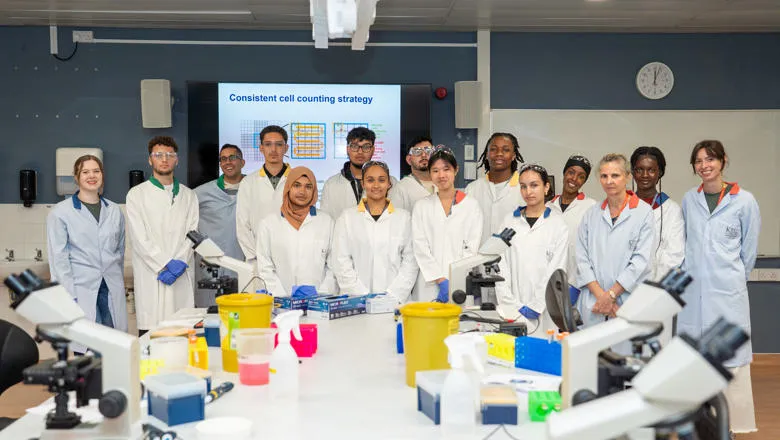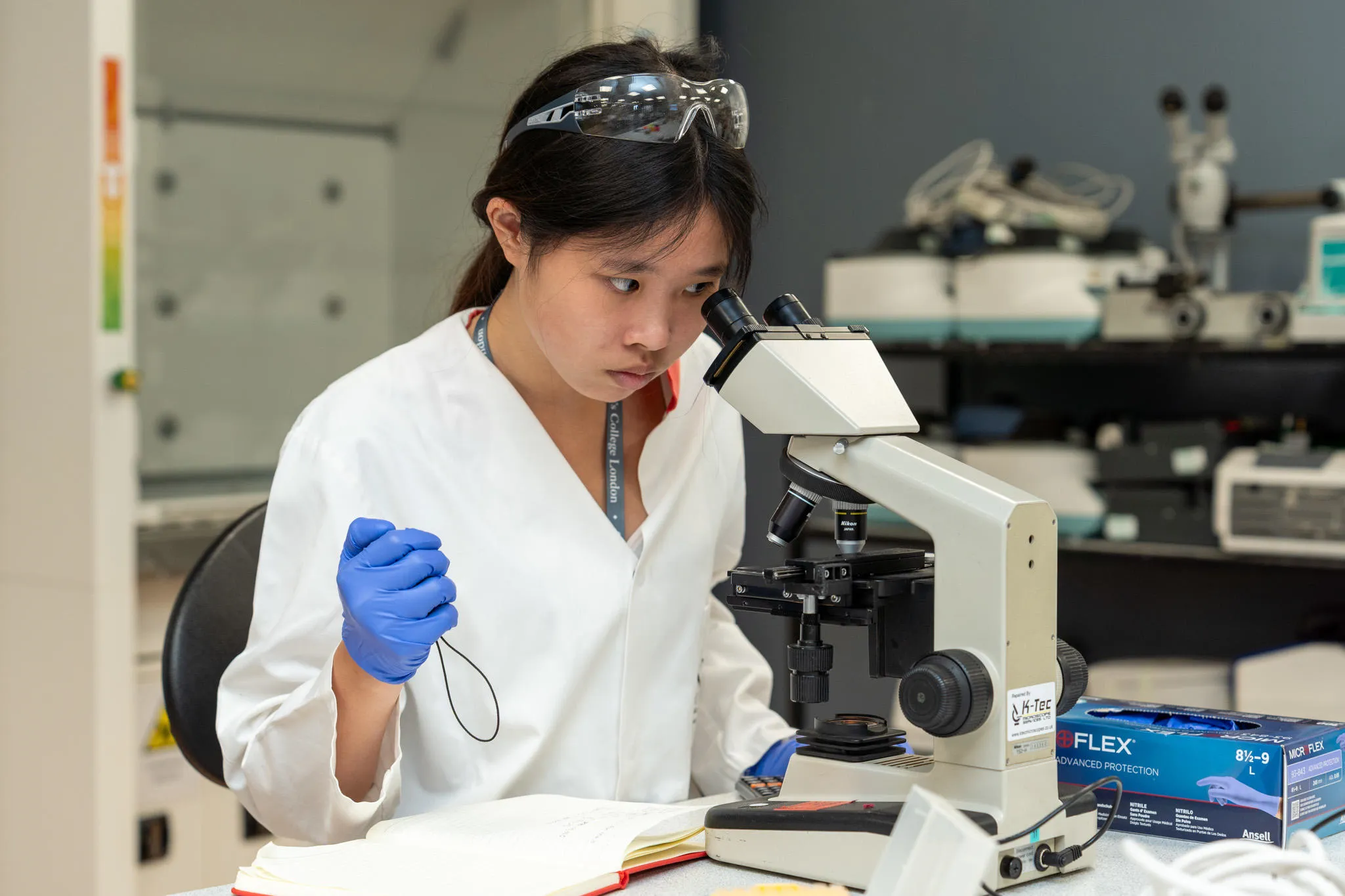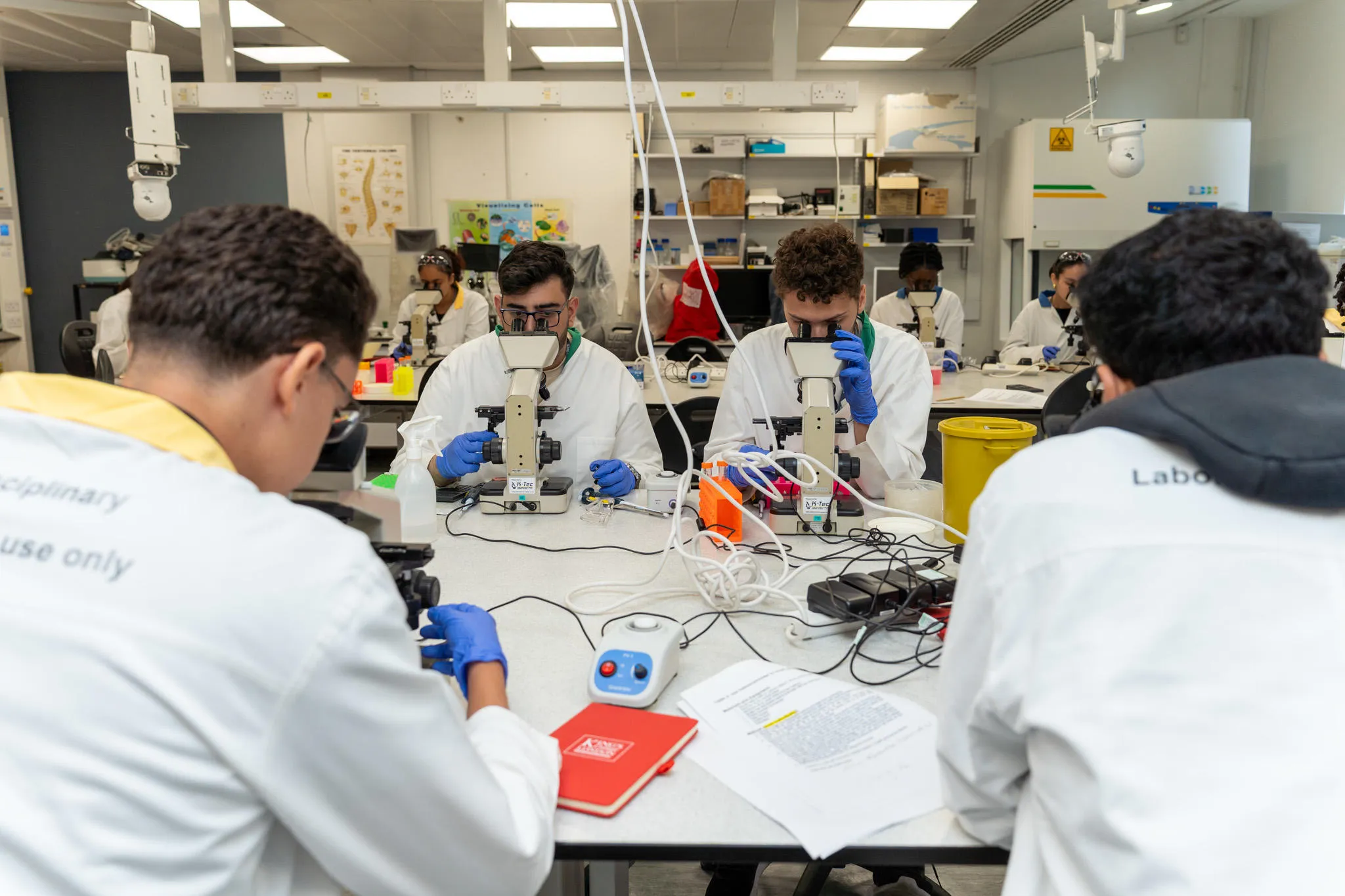“It’s always a privilege to spend the week with our STARS students. These curious, enthusiastic young people have so much to offer, but the path to studying science at university can be full of challenges. By offering them inspiration and guidance, I hope that the STARS programme will be a launchpad into fruitful and meaningful careers.”
Professor John Marshall, Professor of Tumour Biology at the BCI and STARS lead
17 July 2025
A-level students learn cutting-edge cancer research skills
King's opened its doors to the next generation of cancer researchers this this week.

Organised by the Cancer Research UK City of London Centre, over fifty A-level science students received hands-on laboratory experience at King's, the Barts Cancer Institute and UCL as part of the STARS programme.
The Science Training for Aspiring Research Scientists (STARS) programme has been designed for teenagers from schools with historically low university admissions. The programme gives participants a taste of life as a cancer researcher, connects them with current PhD students, and provides information and tips on university applications.

STARS was launched in 2013 by Professor John Marshall at the Barts Cancer Institute (BCI), Queen Mary University of London. The BCI forms part of the CRUK City of London Centre, which exists to foster collaboration between cancer scientists there and at UCL, King's and The Francis Crick Institute.
STARS has been funded by the CRUK City of London Centre since 2023, and in 2024 it expanded to include placements at UCL and King's.
Each STARS group experienced a unique programme of activities that reflects the strengths and interests of the institute hosting their placement.

At King's, students visited the Gordon Museum of Pathology earlier this week, and spent time in the lab analysing DNA damage in colorectal cancer cells treated with chemotherapy. They have also met scientists from a range of career paths and stages, including medical students, lab technicians and clinical trials coordinators.
Leveraging the advantage of dedicated teaching labs, the BCI STARS learned how to perform different cell and molecular biology experiments. This included growing cancer cells, labelling cancer sections and purifying and analysing DNA.
At UCL, this year’s programme saw students taking a deep dive into the use of therapies to boost the body’s own immune system to fight glioblastoma, the most common brain cancer in adults. The students explored how glioblastoma could be tackled using CAR T cell therapy, a cutting edge treatment to engineer the body’s own immune cells to recognise and fight cancer more effectively.
The STARS students are mentored and taught by current PhD students, who are able to offer real-world careers advice. For these mentors, STARS provides an opportunity to develop their communication and teaching skills, and see their work in a new light.
The CRUK City of London Centre has a commitment to championing equality, diversity and inclusion in scientific research. STARS participants are selected from schools across London by the Mayor’s Fund for London, a charity that champions opportunities for young Londoners facing the biggest barriers.
